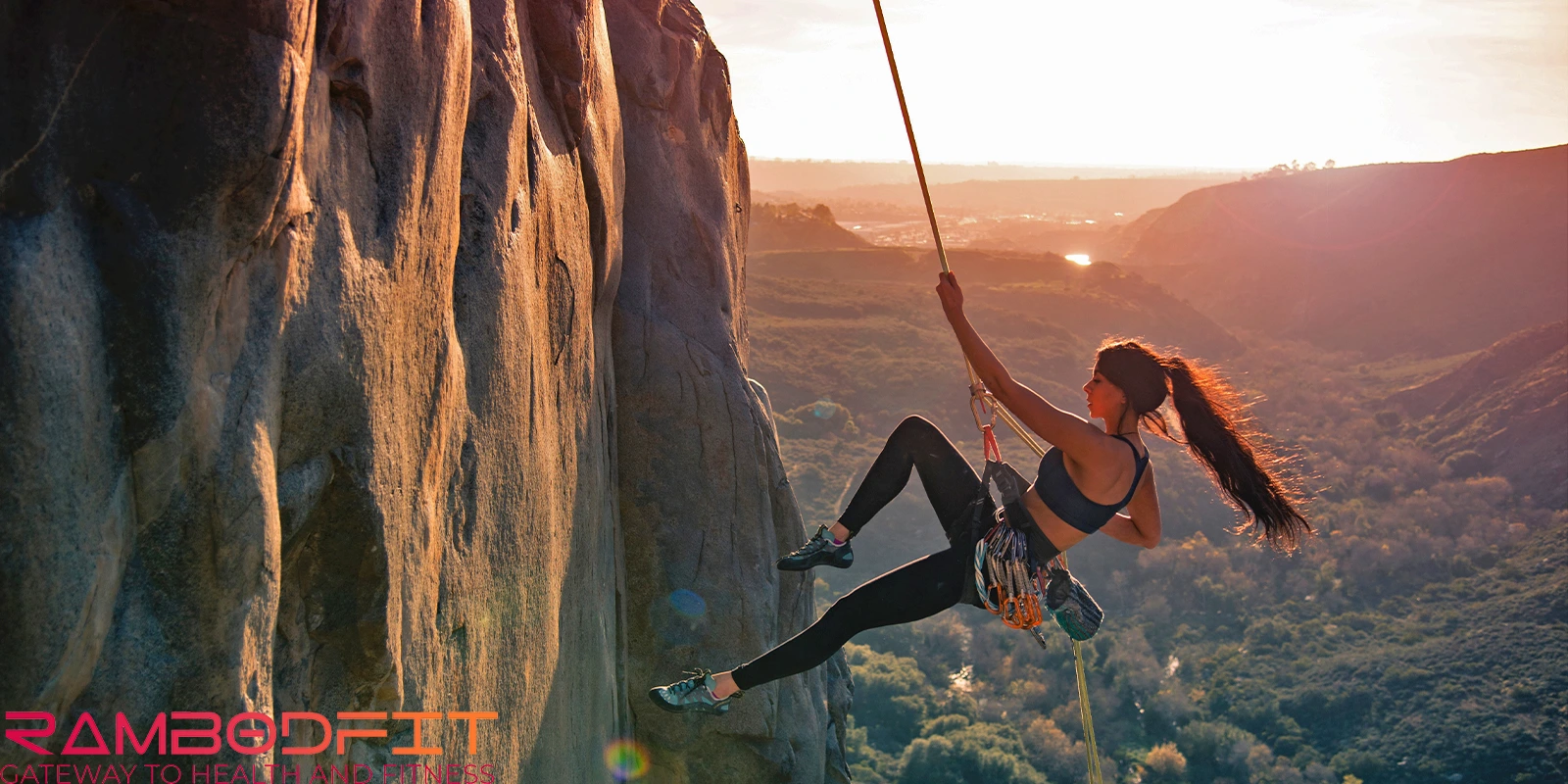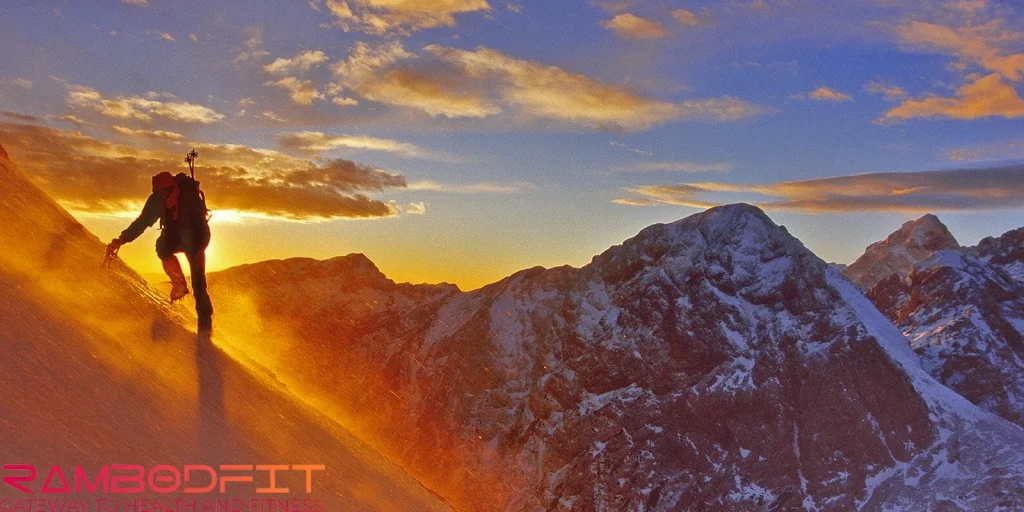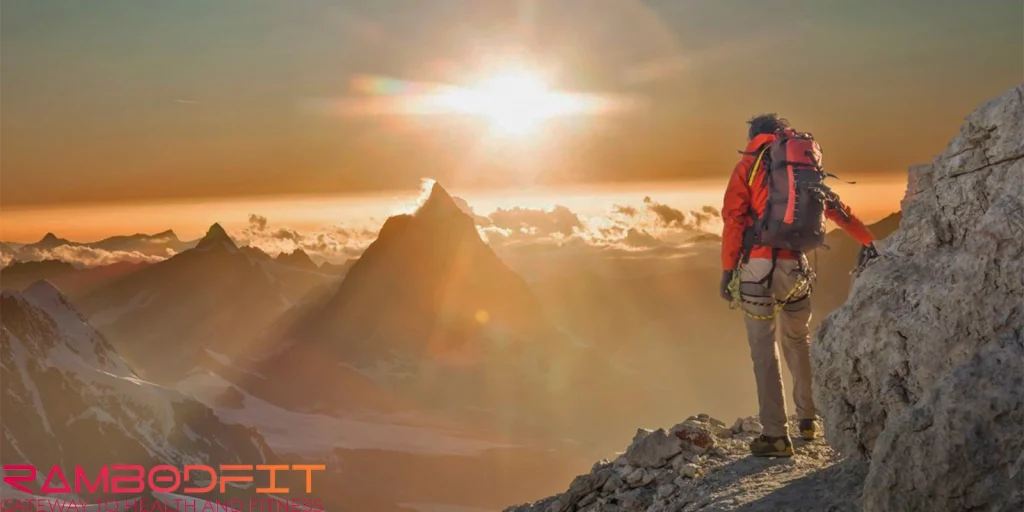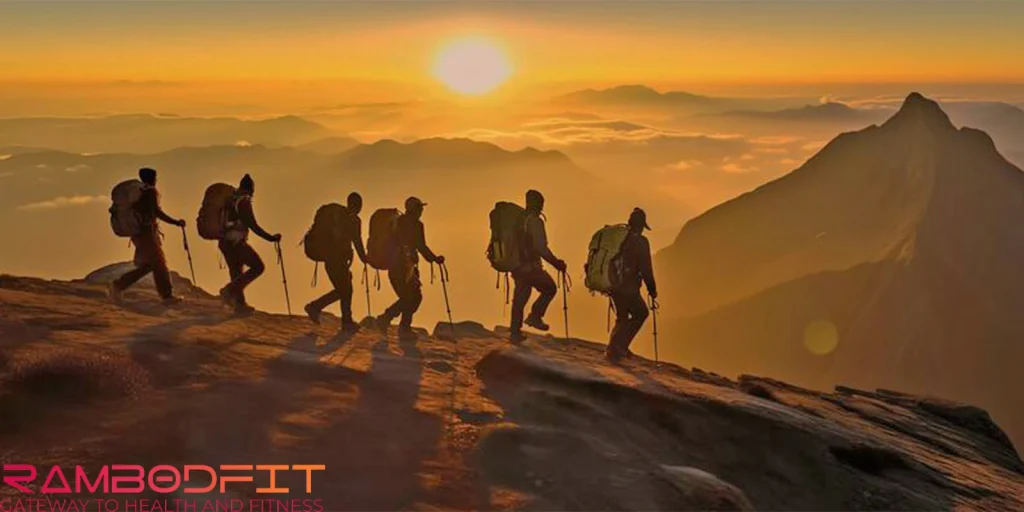


Mountain climbing is one of the most popular sporting activities throughout the world. It not only improves your physical health but also has positive effects on your mental health and emotional well-being. However, beginner mountain climbers can face danger if they don’t follow proper preparation and safety measures.
Here at RambodFit, We’ll explore 10 important tips for hikers to ensure a safe and enjoyable experience.
Table of Contents
Climbing mountains or hiking is a very pleasant way to explore magnificent nature. The scenery will most certainly captivate you. Additionally, you’ll experience an unforgettable thing, which will remain with you for the rest of your life.

For hiking, especially beginner mountain climbers should observe these 10 essential tips for hiking to be more safe and enjoy their hiking.
Here are the 10 important tips for beginner mountain climbers:
Before setting off to the mountain, it is necessary to plan carefully for the trip. This process includes researching the path, weather conditions, elevation, and the estimated required time for the hiking.
You can use some websites such as AllTrails and Mountain Forecast. They can provide you with helpful information. And remember to carry a physical map with you, even if you use GPS.
Using proper gear and clothing is very advisable. This includes useful hiking boots, warm and layered clothing, a lightweight backpack, and safety equipment like helmets and trekking poles. Pay attention to your boots because they should fit well and provide proper ankle support.
Mountain climbing can involve dangerous risks such as physical injuries, hypothermia, heart problems, or heatstroke. So, having sufficient basic first aid knowledge and carrying a first aid kit is vital because it can save lives.
The first aid kit should include bandages, adhesive tape, painkillers, and antiseptic ointment. Moreover, if you have severe heart issues, try to avoid mountain climbing.
Proper nutrition and drinking enough water are crucial during mountain climbing. Lack of water can lead to exhaustion, dizziness, and even more dire issues. Carry enough water and nutritious snacks such as nuts, dry fruits, and energy bars. Try to drink water every 15 to 20 minutes, even if you don’t feel thirsty.
When you’re climbing at a high altitude, you should be very careful because it can cause altitude sickness, with symptoms such as headaches, nausea, and dizziness. In order to avoid this, allow your body time to acclimate and prevent quick ascents. Moreover, if you feel the mentioned symptoms, try to climb down and don’t continue your ascent.

All humans including mountain climbers are supposed to respect nature all the time. We should avoid polluting the environment. This includes packing out trash, avoiding harmful chemicals, and preventing damage to plants and the animals that are living in the wildlife. Always try to carry moveable trash cans or simple plastic bags in order not to leave the rubbish in nature.
If possible, try not to hike alone because hiking alone can be very risky. If you’re planning on hiking alone, make sure to inform your friends or family about your route and also try to share your exact location with them.
Using applications such as Garmin inReach can be a great help in emergencies.
Hiking demands physical fitness. Cardiovascular and strength training exercises are able to facilitate the challenges for you. Start training at least 4-6 weeks before your ascent. If you’re not fit enough, try to avoid climbing high altitudes.
The climate in the mountains can change rapidly. Always remember to check the weather forecast before setting off your hike and don’t forget to carry proper clothing for changeable weather conditions. Don’t trust the sun, and carry your windproof and waterproof jacket with you.
You can check weather conditions from Mountain Forecast.
We are not similar in the case of fitness levels. Therefore, it’s necessary to respect your restrictions and try to avoid pushing yourself more than your abilities and capabilities. Whenever you feel tired or not well, stop and rest for a while and then continue your journey.

Hiking is a rewarding activity that enhances physical health and mental well-being especially if you do it with your friends, but it requires proper preparation, planning, and safety awareness.
By following the 10 essential tips outlined in this guide for beginner mountain climbers—such as planning ahead, choosing the right gear, staying hydrated, and respecting nature—you’ll be able to significantly reduce risks and maximize your enjoyment. Whether you are a beginner or a professional climber.
Always try to observe safety protocols to stay away from danger also share this with beginner mountain climbers to help them as well.
There are other contents about nutrition that you may find useful:
The amount of water needed depends on weather conditions and your activity level, but generally, drinking 0.5 to 1 liter of water per hour is recommended especially for beginner mountain climbers.
Yes, but it’s best to start with short and easy trails, gradually increasing the difficulty level.
To prevent altitude sickness, ascend slowly and give your body time to acclimate.